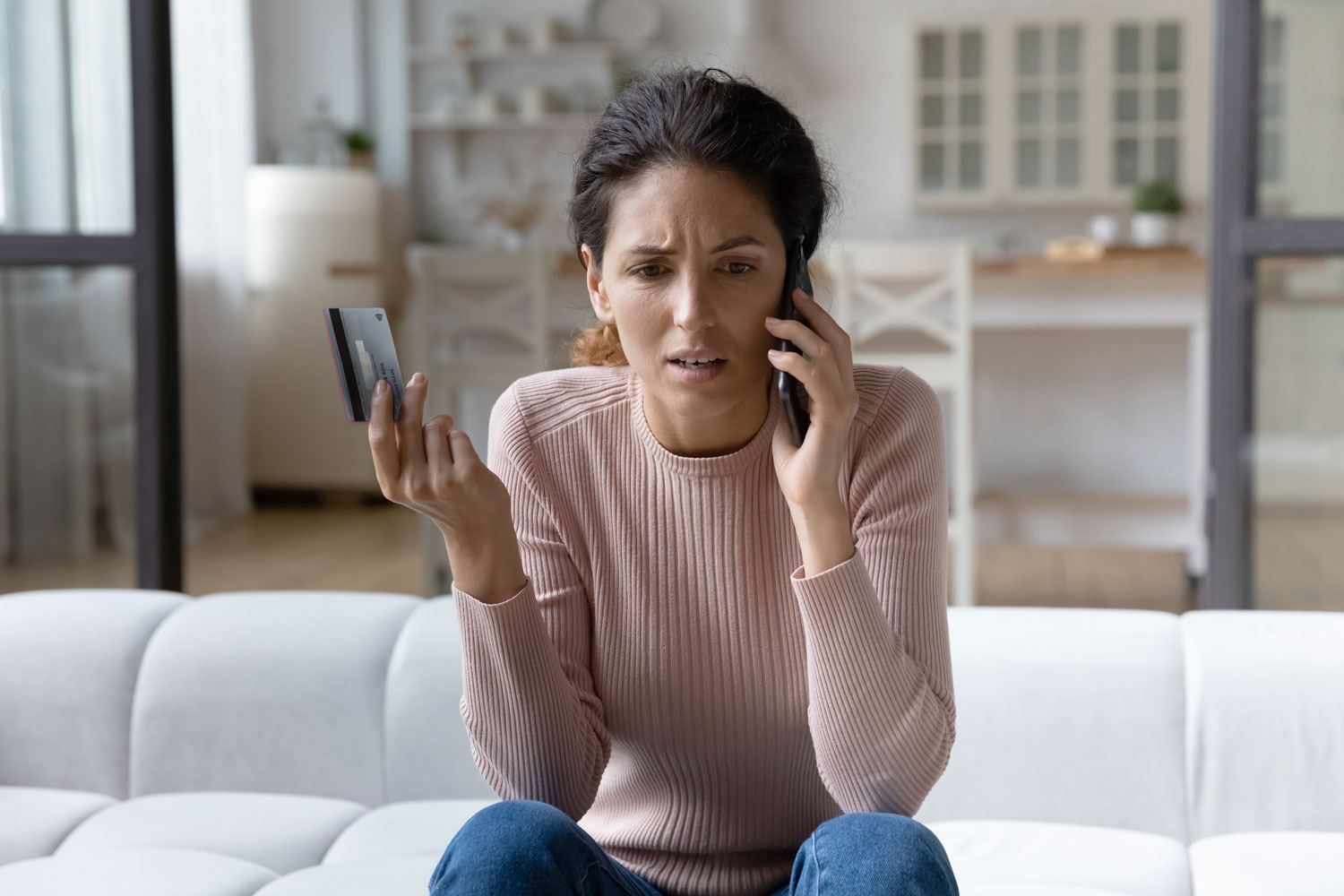What To Do When Fraud Happens To You

Phishing, spoofing, identity theft . . . criminals never stop developing new and more insidious ways of trying to deprive people of their hard-earned money. It’s important to note that much of the responsibility for protecting your financial security is on your shoulders, which is why it’s essential to safeguard your personal data and never give it out to anyone who texts, emails or calls you, even if they claim to be a trusted source. The latter is called spoofing.
It’s also important to remember that no business, financial institution, government agency, etc. will ever ask you to purchase gift cards to pay them or ask you to validate your account with them. Also, you should never give out an auto-generated validation code over the phone to see if your account works.
That being said, there are many instances where even the most security savvy of us fall prey to the latest scam, sometimes by no fault of our own. Regardless of how you got there, becoming a victim of fraud can be terrifying, especially when watching precious funds drain from your account. Which is why American Airlines Federal Credit Union wants to arm you with the best ways to respond if fraud happens to you.
The most common ways to respond to fraud include:
- Use our Card On/Off Function. You can easily turn it off your debit or credit card(s) to ensure no other charges are made. Follow these simple steps:
- Log into online banking.
- Click on “Card Services in the left-hand menu and select “Card On/Off.”
- Toggle the switch next to the missing card to “Off.” If you locate your card later, you can switch the card back on and avoid the hassle of having new cards reissued.
- Remember: If your card has been compromised, you can turn it on briefly to access emergency cash and turn it right back off until it can be replaced.
- Contact the Credit Union as soon as possible. The best way to do so is by phone at (800) 533-0035. Speak with Member Advocate to help determine which department would be best suited to handle your problems. The Member Advocacy Center is open 7 a.m.-7 p.m. Central Time Monday-Friday, 7 a.m.-5 p.m. Central Time Saturday. If fraud occurs outside business hours, don’t panic. Our debit cards are protected with Visa’s Zero Liability* coverage for unauthorized transactions, so make certain to contact the department on the next business day. You can also email us at members@aacreditunion.org or click on the “Chat with us!” button on our homepage.
- Change your log-in information. Log into online banking. Click on “Settings” and scroll to “Security Preferences.” The next screen will allow to change your password, log-in ID and adjust your secure access code option.
Here are some common fraud scenarios along with suggestions for which of the options above you should choose:
My bank account has been hacked and is being emptied.
There are a few ways something like this could happen, including a merchant breach (in which one of the stores you visited has their customer information hacked), an ATM or card skimmer or you may have mistakenly given out your personal information to a fraudster through any of several common scams.
What to do:
- Turn off your debit card using the Card On/Off function.
- Change your log-in information as soon as possible.
- Contact the Credit Union as soon as possible by phone, email or live chat.
My Credit Union debit or credit card is missing.
If you suspect that you may have left one of your cards at a restaurant or another retailer, you don’t necessarily have to cancel your cards and start over from scratch.
What to do:
- Use the “Card On/Off” function.
Someone is charging multiple fraudulent charges to my debit/credit card.
What to do:
- Use the “Card On/Off” function.
- Contact the Credit Union as soon as possible by phone, email or live chat.
I responded to a suspicious email, text or phone call.
What to do:
- Contact the Credit Union as soon as possible by phone, email or live chat.
- Use the “Card On/Off” function.
- Change your log-in information as soon as possible.
I found a few random charges on one of my accounts that I don’t remember making.
What to do:
- Use the “Card On/Off” function.
- Contact the merchant to see if you can determine what the charges might be.
- If you can’t come up with a satisfactory explanation and still believe the charge(s) to be fraudulent, contact the Credit Union as soon as possible by phone, email or live chat.
+Visa's Zero Liability Policy covers U.S. issued cards and does not apply to ATM transactions, PIN transactions not processed by Visa, or certain commercial card transactions. Cardholder must notify issuer promptly of any unauthorized use on their card. Consult issuer for additional details or visit www.visa.com/security.

